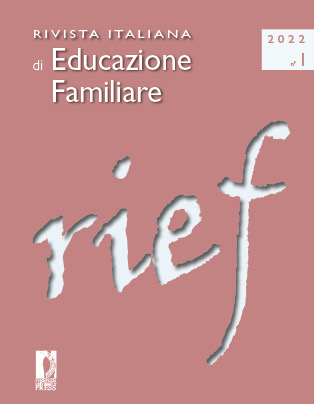Published 2022-07-06
Keywords
- pandemic,
- family relationships,
- vulnerability,
- resilience,
- prosociality
How to Cite
Abstract
In the wake of the Covid-19 pandemic emergency, the world of education and training quickly came to the family’s side, designing and implementing new methods of teaching/learning/evaluation and educational support, including at a distance. Nevertheless, statistics reveal a worrying increase in the level of discomfort, incomprehension and frustration experienced in family relationships at the time of Covid. These critical issues have prompted the international pedagogical community to intensify theoretical and practical research on the family, creating new spaces for reflection and comparison of a multidisciplinary nature, to address the current historical moment. The aim of scholars is not limited to a critical reading of what is happening in family relationships and the effects that the pandemic is producing now and will produce in the future, but also aims to understand the deep reasons, hidden in the folds of existence, that can make some families particularly vulnerable compared to others. If, in fact, for some types of families and parental figures the health crisis seems to have had and still has particularly harsh and disorientating consequences, such as to overwhelm the intra-family relations that form and sustain the fabric of our society, for others the same has not been true. Alongside vulnerable families, there are, in fact, some positive family situations, which seem to be resisting the pandemic crisis and which do not show particularly obvious signs of collapse and/or implosion. Faced with this lack of homogeneity in their experiences, the question arises: what can affect the resilience and well-being of families, given the same socio-cultural and economic conditions, in crises such as the present one? To answer this question, we conducted a qualitative and quantitative exploration of 156 families on four continents – Europe, America, Asia and Africa – between 2020 and 2021. This paper therefore describes the investigative pilot, presenting for the first time the results obtained.


